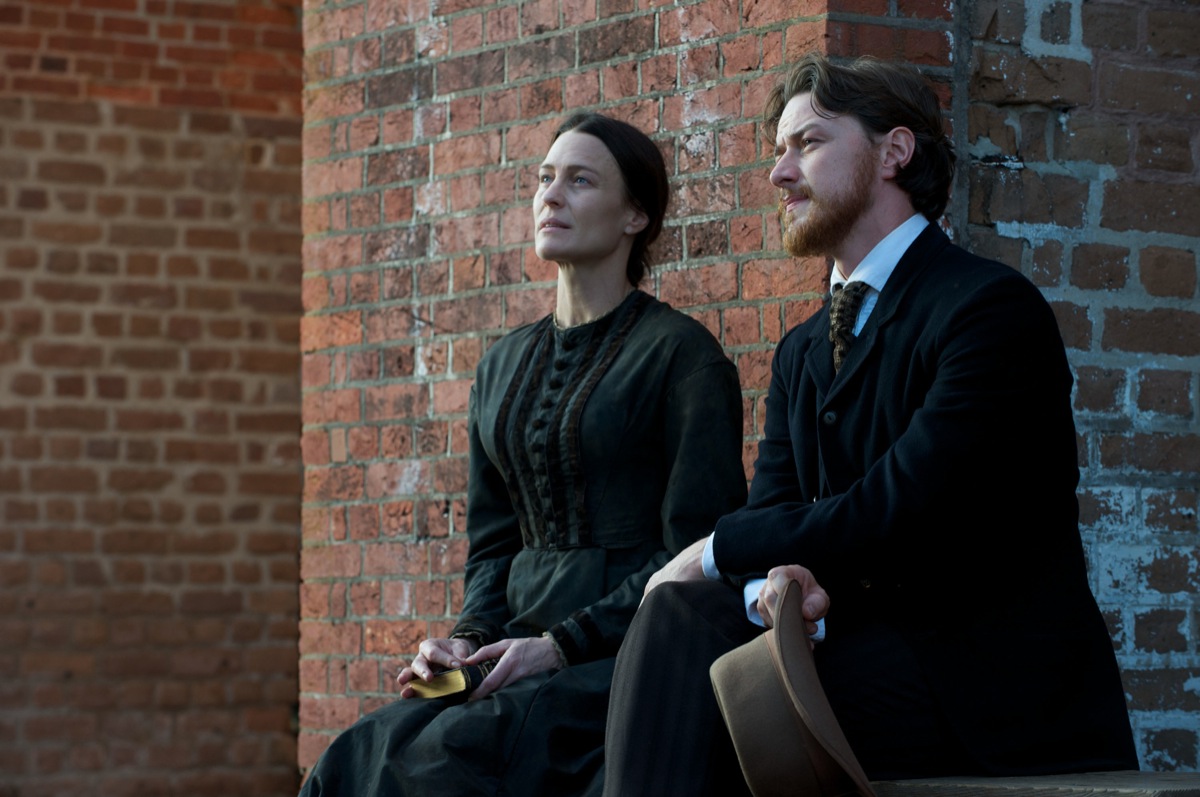The Conspirator
The Conspirator
Ealasaid A. Haas
Directed by: Robert Redford
Starring: Robin Wright, James McAvoy, Kevin Kline, Tom Wilkminson, Danny Huston
Rated: PG-13 for some violent content.
“The Conspirator” is a timely and pointed film. Although it details events surrounding President Lincoln’s assassination nearly a hundred and fifty years ago, its underlying themes are ones we still wrestle with today. While Mary Surratt, as played by Robin Wright, is likely more sympathetic for modern viewers than the prisoners in Guantanamo, the questions raised by her case will be familiar to anyone who pays attention to the news.
Surratt ran a boarding house in which the conspirators (including her son) who assassinated Lincoln apparently met to make their plans. She and the other accused conspirators were tried together in a military tribunal rather than in a civilian court, which hampered her defense significantly. Of course, her defense was also hampered by the fact that nobody wanted to take it on — doing so would put her lawyer in a place to be accused of disloyalty to the Union. Young attorney (and Union war hero) Frederick Aiken (James McAvoy) is essentially strong-armed into taking the job, and although he starts out very reluctant, as the film progresses, he becomes increasingly appalled by the way the trial is being run.
Director Robert Redford and the scriptwriters tread a fine line — even without the possibly-false evidence brought by the prosecution, there was definitely something fishy about Mary Surratt. However, as Aiken finally points out, because the trial was run the way it was, we will never know the truth. Aiken himself never becomes entirely convinced of her innocence, but he is so upset about the proceedings that he becomes obsessed with setting things right, even though it will likely make him powerful enemies.
Of course, any film which includes military tribunals and writs of habeas corpus, and has a plot about alleged perpetrators of a national tragedy brings current events to mind, and it’s likely that Redford is just preaching to the converted with his film. It’s hard to imagine someone who supports military tribunals at Guantanamo seeing “The Conspirator” and suddenly changing their minds. However, it’s a brilliantly-crafted, thoughtful film and stands on its own merits aside from its political message.
The acting is superb, as one would expect with such a top-notch cast and director. Robin Wright has to essentially carry the film, and does so with grace, making Surratt at once sympathetic and opaque. Did she know what her son and his friends were up to? Did she help them? It’s eminently possible to be unsure (or even to think she was guilty) and still find the story compelling, which is a tribute to both Wright’s acting and the script.
McAvoy is perfect for Aiken: young, handsome, and able to show his character’s conflicted feelings about the case. Kevin Kline plays War Secretary Edwin Stanton, the mastermind behind the tribunal, and does so with relish. Stanton is an “ends justify the means” sort of fellow, and while his motivations are good, his methods are questionable at best. The rest of the cast is similarly talented, and it’s easy to sink into the film and be swept up — as long as you don’t mind its careful, deliberate pace. The first sections of the film feel more like a stageplay than a movie, and for those who like their rollercoaster rides to start immediately, that may be a dealbreaker.
In the end, whether you enjoy “The Conspirator” or not depends on your taste. If you enjoy historical dramas and are willing to entertain the idea that even criminals deserve a real trial rather than a kangaroo court, do not miss this film. If you prefer Hollywood blockbusters, dislike political films, or disagree with the film’s position on military tribunals, you’ll probably be better served elsewhere.
